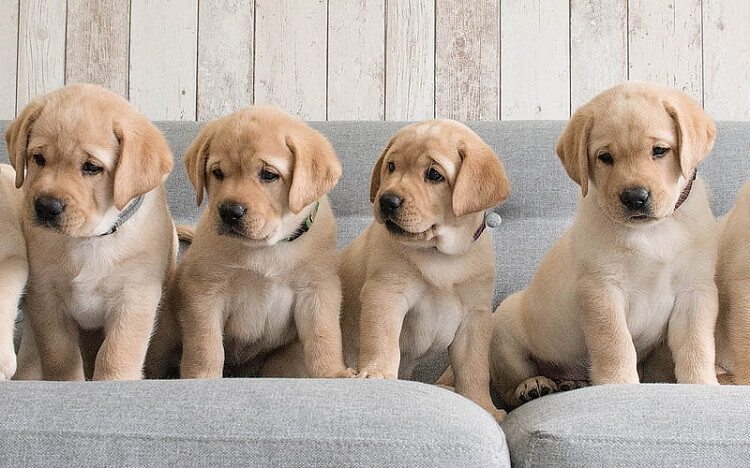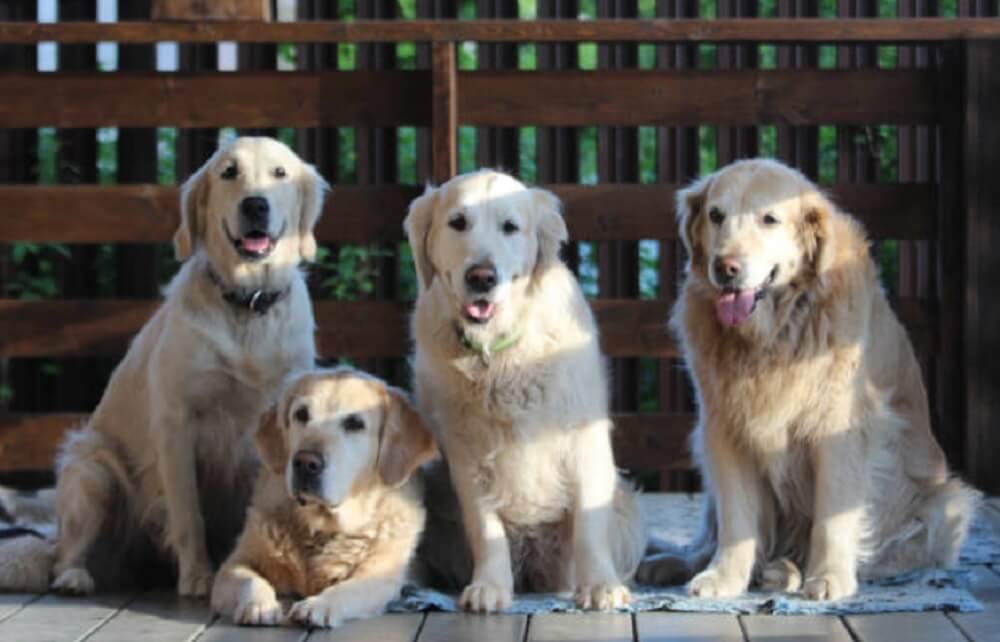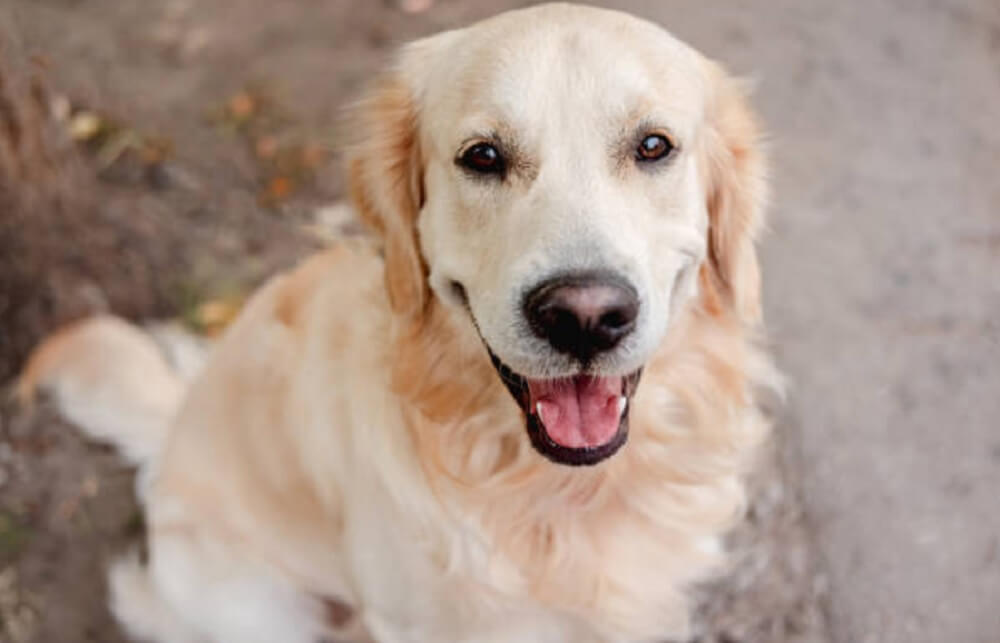
Golden Retriever
The Golden Retriever is one of the most popular and beloved dog breeds in the world, known for their friendly, tolerant attitude and beautiful golden coats.
They are a versatile breed that excels in roles like family pets, therapy dogs, and working dogs, especially in search and rescue or as guide dogs. Here’s a comprehensive guide to the Golden Retriever:
Physical Appearance:
-
Size:
- Height: Males: 23 to 24 inches (58 to 61 cm); Females: 21.5 to 22.5 inches (55 to 57 cm).
- Weight: Males: 65 to 75 pounds (29 to 34 kg); Females: 55 to 65 pounds (25 to 29 kg).
- Build: Golden Retrievers have a sturdy, athletic build. They are well-proportioned and have a powerful, graceful stride.
- Coat: The Golden Retriever’s coat is one of its defining features. It’s dense and water-repellent, with a thick undercoat and a longer, feathery outer coat. Their coat may be straight or wavy.
- Colors: True to their name, they come in various shades of golden, ranging from light cream to dark gold.
- Head and Ears: They have a broad skull with a friendly, intelligent expression. Their ears are medium-sized, hanging down close to the cheeks.
- Tail: They have a long, feathery tail that is carried level with their back or slightly raised when they are excited.

Essentials for Your Newly Adopted Pet
Welcoming a shelter pet into your life is a beautiful journey. Here are some handpicked items to help your new friend feel safe, loved, and right at home:
Temperament and Personality:
- Friendly and Outgoing: Golden Retrievers are known for their friendly, patient, and easygoing nature. They get along well with almost everyone, including children, other pets, and even strangers.
- Affectionate and Loyal: They are incredibly affectionate dogs and form strong bonds with their families. Golden Retrievers thrive on human interaction and love being part of the family.
- Intelligent and Eager to Please: Golden Retrievers are highly intelligent and trainable. They love to please their owners and are quick learners, which is why they are often used as service dogs, guide dogs, and in obedience competitions.
- Gentle and Patient: This breed is known for its gentle temperament. They are especially good with children, making them excellent family pets. Their patience also makes them well-suited for roles like therapy dogs.

Exercise and Activity Needs:
- Active and Energetic: Golden Retrievers are an energetic breed that requires regular exercise to stay happy and healthy.
- Daily Exercise: They need at least 1 to 2 hours of exercise each day, which can include walks, playtime, and activities like swimming, fetch, or hiking.
- Mental Stimulation: In addition to physical exercise, Golden Retrievers need mental challenges to keep their sharp minds engaged. Puzzle toys, training sessions, and games like hide-and-seek are excellent ways to keep them mentally stimulated.
- Enjoyment of Water: Golden Retrievers love water and are natural swimmers. They often enjoy playing in lakes, rivers, or pools, and water games can be a great way to give them exercise.
Training and Socialization:
- Highly Trainable: Golden Retrievers are known for their intelligence and eagerness to learn. They are excellent at obedience training and often excel in advanced tasks like agility, tracking, and service work.
- Positive Reinforcement: They respond best to positive reinforcement methods, including treats, praise, and play. They do not respond well to harsh training methods.
- Early Socialization: Like all dogs, Golden Retrievers benefit from early socialization, which involves exposing them to various people, places, sounds, and experiences to ensure they grow into well-adjusted adults.
- Consistent Training: Consistency is key in training Golden Retrievers. They are eager to please and love having a routine, but owners should also be patient, as some Goldens can be slow to mature emotionally.
Health and Lifespan:
- Lifespan: The average lifespan of a Golden Retriever is about 10 to 12 years.
-
Common Health Issues:
- Hip Dysplasia: This is a genetic condition where the hip joint doesn’t develop properly, leading to arthritis and pain.
- Elbow Dysplasia: Similar to hip dysplasia, this affects the elbow joint and can cause lameness and arthritis.
- Cancer: Unfortunately, Golden Retrievers are prone to several forms of cancer, including lymphoma and hemangiosarcoma, making regular vet checkups crucial.
- Progressive Retinal Atrophy (PRA): This is a degenerative eye disorder that can lead to blindness.
- Subvalvular Aortic Stenosis (SAS): A heart condition where the aorta is narrowed, leading to heart complications.
- Allergies: Golden Retrievers can be prone to skin allergies, which may require special attention to diet and environment.
- Health Testing: Reputable breeders will perform health screenings for hip and elbow dysplasia, eye diseases, and heart conditions to ensure healthier puppies.
Grooming Needs:
- Heavy Shedders: Golden Retrievers are known for shedding year-round, with heavier shedding occurring during spring and fall. Regular brushing (at least several times a week) helps control shedding and keeps their coat in good condition.
- Bathing: They don’t need frequent baths, usually once every couple of months or when they get dirty. Bathing too often can strip their coat of natural oils, leading to dry skin.
- Ear Care: Their floppy ears can trap moisture, making them prone to ear infections. Regular ear cleaning is necessary to keep their ears healthy.
- Dental Care: Like all dogs, Golden Retrievers benefit from regular teeth brushing to prevent dental disease.
- Nail Care: Regular nail trimming is important to prevent discomfort or joint issues caused by overgrown nails.
Living Conditions:
- Space Requirements: Golden Retrievers do best in homes with yards where they can run and play, but they can adapt to apartment living if given enough exercise.
- Family-Oriented: Golden Retrievers thrive on human companionship and don’t do well being left alone for long periods. They are happiest when they can be part of family activities.
- Indoor/Outdoor: Although they enjoy playing outside, Golden Retrievers should be kept indoors with their family most of the time. They are social dogs and need to be part of daily family life.

Golden Retrievers as Family Dogs:
- Great with Kids: Golden Retrievers are known for their patience and gentleness with children. They make excellent family pets and are known to be protective and loving toward younger family members.
- Good with Other Pets: With proper socialization, Golden Retrievers generally get along well with other dogs and even cats. Their friendly and tolerant nature makes them great companions in multi-pet households.
- Loving and Affectionate: They are affectionate dogs that love to be around their family. They enjoy cuddling, playing, and just being near their loved ones.
Golden Retrievers as Working Dogs:
- Service Dogs: Due to their intelligence and gentle nature, Golden Retrievers are often used as service dogs for people with disabilities. They are especially common as guide dogs for the visually impaired.
- Therapy Dogs: Their calm and loving demeanor makes Golden Retrievers ideal therapy dogs. They are often used in hospitals, nursing homes, and schools to provide comfort and emotional support.
- Search and Rescue: With their strong sense of smell and high intelligence, Golden Retrievers excel in search and rescue operations.
- Hunting Dogs: Originally bred as hunting dogs, they still retain a strong instinct to retrieve. Many Golden Retrievers are trained as gun dogs, particularly for waterfowl hunting.
History of the Golden Retriever:
- Origins: The Golden Retriever breed was developed in Scotland in the mid-19th century by crossing various retriever breeds, including the now-extinct Yellow Retriever, with water spaniels. The goal was to create a dog that could retrieve game from both water and land, making them excellent hunting companions.
- Recognition: The breed was officially recognized by the Kennel Club in England in 1911 and later by the American Kennel Club (AKC) in 1925. Since then, Golden Retrievers have become one of the most popular breeds worldwide.
Golden Retriever Varieties:
- American Golden Retriever: The American version tends to be leaner and less heavy than their British counterparts. Their coat color is usually a deeper gold.
- English Cream (British) Golden Retriever: These Golden Retrievers have a stockier build and a lighter, cream-colored coat. They are often seen as slightly calmer than the American variety.
- Canadian Golden Retriever: Similar to the American type, but slightly taller and leaner with a thinner coat.
Summary:
Golden Retrievers are one of the most popular dog breeds for good reason. They are friendly, intelligent, and versatile dogs that can excel in a variety of roles, from being a loving family pet to a working service dog. Their patience, loyalty, and trainability make them excellent companions for individuals and families alike. With proper care, regular exercise, and plenty of love, Golden Retrievers make wonderful lifelong companions.
Affiliate Products
Up to 75% Discount

Dog Collar with Health Monitoring
BUY NOW »
Up to 55% Discount

Luxury Faux Furhuge Napping Bed
BUY NOW »

